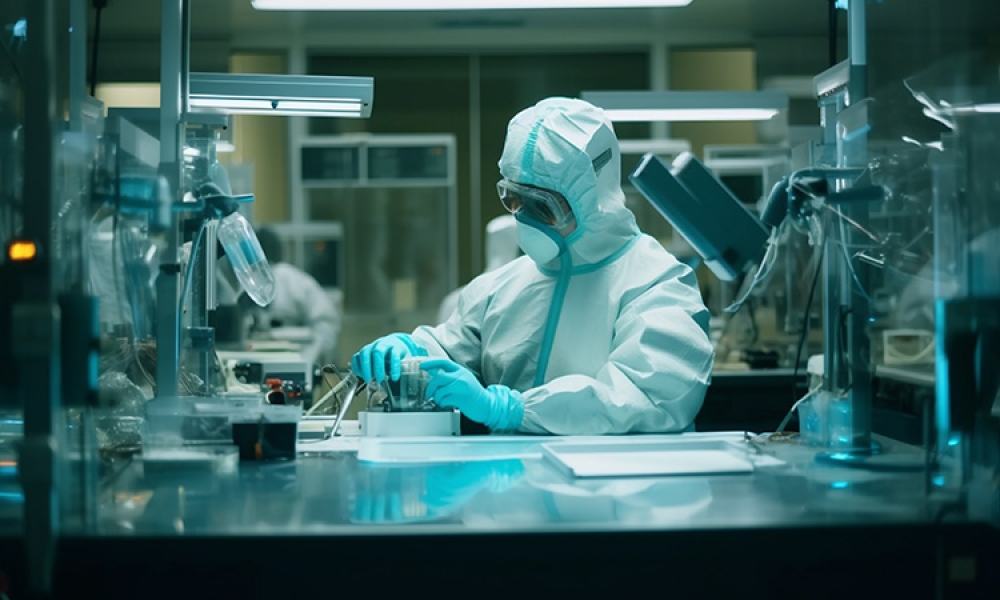Indeed, now we are in the Star Trek era where science fiction is reality; in the era when your phone acts as a regulated medical device and FDA can recall “software.” I can go on and on.... who would have imagined these advances only in a few decades?
With almost 30 years in the industry, I don’t feel old, but I’m amazed at how quickly technology has advanced. I rewind to the early 1990s. I joined the USFDA as a Field Investigator in the New Jersey District. This was a proving ground for what to do and want NOT to do in terms of GMP compliance. The pharma industry ended up with the generic drug industry, born out of the Waxman Hatch Legislation from the mid-1980s. This presented a whole new set of challenges but opportunities, unknown at that time. MABs (Monoclonal Antibodies) were groundbreaking and the first emerging technology during this time and were gaining acceptance.
I fast forward to today. The ISPE Aseptic Conference is now well into several decades of existence. Personally, I have literally grown in my career with this conference. The conference in Maryland, USA (near Washington DC) showcases new and rapidly evolving technology and capabilities that transform our global industry. This conference has never disappointed in terms of content and attendance.
As this is my 3rd year on the Program Planning Committee, this is my first real post-pandemic Aseptic Conference. The pandemic, albeit painful for many, has transformed not only our routine behaviors but also our expectations related to industry and regulator collaboration.
I am excited about what this year’s Aseptic Conference can offer, and not the least because of the sessions I am chairing. From the regulatory speakers to the various technical sessions, there are multiple opportunities to learn, share, and engage with colleagues globally.
The session “Quality and QRM” will include three presentations that deal with the application of CPV as an alternative to the traditional time-based re-qualification approach, the deep link between Quality Rick Management (QRM) and Contamination Control Strategy (CCS), and how this ultimately connects to ongoing research into the Future of Quality. I also moderate the interactive regulatory panel, where our regulatory experts from FDA will be available to answer your questions about inspections, quality, and all things relevant to the aseptic processing space.
Tim Dreckmann from F. Hoffmann-La Roche Ltd. It will show how a monobloc machine design approach and Design for Manufacturability (DFM) philosophy enabled operational efficiency while achieving flexibility, scalability, and speed-to-market. Following him, Amanda Bishop McFarland from ValSource, Inc. will discuss the importance of avoiding creating individual risk assessments for each requirement of the CCS. Her presentation will examine the language used in Annex 1 to describe risk activities, where those activities are required, and explore various risk assessment tools that can enable the CCS goals. Lastly, Thomas Friedli and Mark Grothkopp from the University of St. Galen will demonstrate their "RiskSurve" project and how it will help create a comprehensive site surveillance model that consolidates data from different dimensions and embeds it in the relevant context.
The COVID-19 pandemic has accelerated the modernization and transformation of how we approach the approval of essential medicines. It has prompted pharmaceutical manufacturers and regulators to develop common understandings, accept new modalities and ultimately deliver medicines faster. This has undoubtedly saved countless lives. The Aseptic Conference highlights many enabling topics, such as supply management, quality control, and the advanced equipment and technologies that made the manufacture and distribution of COVID therapies possible.
The Aseptic Conference consistently attracts a deep bench of expert quality assurance, and regulatory compliance professionals to ensure robust and balanced discussions.
Our pre-conference sessions are aimed at young professionals eager to learn about aseptic processes, technologies, equipment, and how our industry is holistically linked to the betterment of the global healthcare ecosystem. Our future is well preserved, as past Aseptic Conferences have attracted Students with the capability, intelligence, and motivation to learn and understand our rapidly growing and changing industry.
Make plans now to attend the and take advantage of hearing from Industry and Regulatory experts.
Learn More & Register




